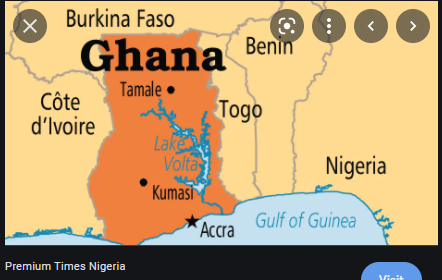Nigeria may copy Ghana’s move despite inflation slowing down
By Jeph Ajobaju, Chief Copy Editor
Ghana has raised interest rate 100 basis points to 14.5 per cent, the first time in five years, to curb inflation by encouraging saving up in banks and reduce spending.
Industry watchers say Nigeria may follow suit even though inflation has slowed and growth is on the uptick in Africa’s largest economy with a 11.5 per cent interest rate.
Stakeholders are awaiting the last meeting of the Monetary Policy Committee (MPC) of the Central Banks of Nigeria (CBN) this year.
For the first time since 2015, the Bank of Ghana (BoG) raised benchmark interest rate, citing as justification “significant” inflation risks.
A statement issued by BoG’s Monetary Policy Committee said the rate was lifted for the first since November 2015, which reverses some of the 250 basis points reduction announced last year to aid an economy ravaged by coronavirus.
Inflation rose to a 15-month high of 11 per cent in October, breaking for the second month in a row beyond the zone of 6 per cent to 10 per cent set by the BoG.
After recent statistics revealed increased momentum in economic recovery from the impact of coronavirus, the committee had room to manoeuvre, per Nairametrics.
______________________________________________________________________
Related articles:
Nigeria’s inflation drops 0.19% points without respite
Inflation falls, food prices rise
Nigeria claims GDP 5.01% growth in H1 2021. But citizens are getting poorer
______________________________________________________________________
Rising headline inflation
“Headline inflation has risen consistently from the low of 7.5 per cent in May 2021 to 11.0 per cent in October driven by both food and non-food price increases.
“In addition, all the Bank’s core measures of inflation have increased, indicating broad-based underlying inflation pressures, with the potential of de-anchoring inflation expectations,” the statement said.
“Currently, headline inflation is above the upper limit of the medium-term target band and the Committee noted significant risks to the inflation outlook. These risks include rising global inflation, high energy prices, uncertainties surrounding food prices and investor behaviour.”
The committee noted that these elevated inflationary risks require prompt policy action to re-anchor inflation expectations to safeguard the price stability objective of the BoG.
Given these considerations, the statement added, the committee decided to raise the policy rate by 100 basis points to 14.5 per cent.
Nigeria’s inflation rate slows
Nairametrics reports that Nigeria’s inflation rate has slowed and growth has accelerated, with a benchmark interest rate of 11.5 per cent ensuring greater spending.
Inflation has levelled off after a substantial rise the previous year.
Data from the National Bureau of Statistics (NBS) shows that inflation rate fell to 15.99 per cent in October from 16.63 per cent in September 2021.
Real Gross Domestic Product (GDP) stood at 4.03 per cent in the third quarter of 2021 (Q3 2021) compared with 5.01 per cent in Q2 2021.
Nigeria’s economy expanded for the fourth quarter in a row, a rebound from the economic downturn caused by the epidemic last year.
The CBN has a strong incentive to keep the rate unchanged. But it may change the rate if new economic indices compel it.















